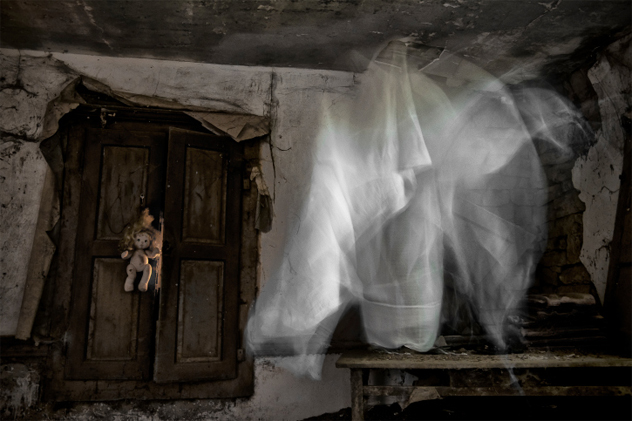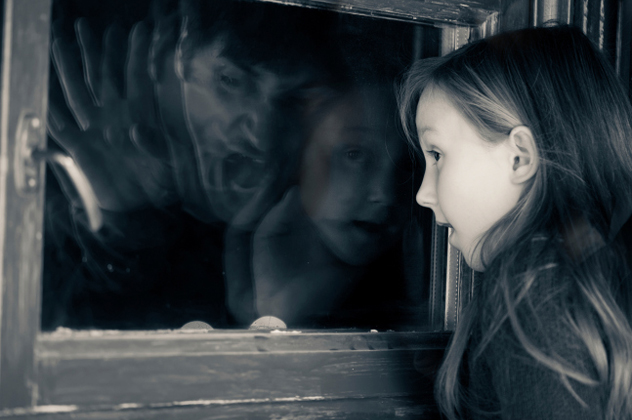 Movies and TV
Movies and TV  Movies and TV
Movies and TV  History
History 10 Wars That Sound Made Up (but Absolutely Happened)
 Movies and TV
Movies and TV 10 Movie Adaptations That Ruined Everything for Some Fans
 History
History 10 Dirty Government Secrets Revealed by Declassified Files
 Weird Stuff
Weird Stuff 10 Wacky Conspiracy Theories You Will Need to Sit Down For
 Movies and TV
Movies and TV 10 Weird Ways That TV Shows Were Censored
 Our World
Our World 10 Places with Geological Features That Shouldn’t Exist
 Crime
Crime 10 Dark Details of the “Bodies in the Barrels” Murders
 Animals
Animals The Animal Kingdom’s 10 Greatest Dance Moves
 Movies and TV
Movies and TV 10 Box Office Bombs That We Should Have Predicted in 2025
 Movies and TV
Movies and TV 10 Movie Franchises That Started Dark but Turned Surprisingly Soft
 History
History 10 Wars That Sound Made Up (but Absolutely Happened)
 Movies and TV
Movies and TV 10 Movie Adaptations That Ruined Everything for Some Fans
Who's Behind Listverse?

Jamie Frater
Head Editor
Jamie founded Listverse due to an insatiable desire to share fascinating, obscure, and bizarre facts. He has been a guest speaker on numerous national radio and television stations and is a five time published author.
More About Us History
History 10 Dirty Government Secrets Revealed by Declassified Files
 Weird Stuff
Weird Stuff 10 Wacky Conspiracy Theories You Will Need to Sit Down For
 Movies and TV
Movies and TV 10 Weird Ways That TV Shows Were Censored
 Our World
Our World 10 Places with Geological Features That Shouldn’t Exist
 Crime
Crime 10 Dark Details of the “Bodies in the Barrels” Murders
 Animals
Animals The Animal Kingdom’s 10 Greatest Dance Moves
 Movies and TV
Movies and TV 10 Box Office Bombs That We Should Have Predicted in 2025
10 Vengeful Ghosts In Folklore And Mythology
People often refer to ghosts as the dead who have unfinished business here on Earth. However, not all of that business is good, and there are stories from every culture of ghosts who seem to want nothing other than revenge against the living, usually for no reason other than spite or anger.
10 Carl Pruitt
Folklore: American

In June of 1938, a man named Carl Pruitt was said to have uncovered his wife’s infidelity, and in his own bed no less. Distraught with the betrayal, he grabbed a chain and strangled her while the other man escaped. Once he realized what he had done, Pruitt killed himself and was buried away from his wife in another cemetery. The locals began to claim that the headstone appeared to have a chain embedded in it, although it wasn’t there when it was first installed. That’s when the victims began piling up.
The first victim was a young boy who threw rocks at the tombstone. While he was riding his bike back home, he lost control, as if something (or someone) else was controlling the bike, and he crashed. During the accident, the bike chain came loose and strangled the young boy. A few weeks later, the boy’s mother took an axe and destroyed the tombstone. When she was hanging her clothes to dry at home later, the clothesline came loose and wrapped itself around her neck, strangling her (her clothesline was also made out of chain rather than string). When authorities went to the graveyard, they found that the tombstone was unharmed.
Three more people, each one a person who disturbed Pruitt’s grave, died in a similar manner. Eventually, after all the other corpses were moved, his plot was forgotten and covered by weeds. In the 1950s, a strip-mining operation was undertaken and Pruitt’s grave was destroyed. As of yet, no one has been killed for this offense.
9 Sundel Bolong
Folklore: Malaysian

One of the more popular ghosts in Malaysian folklore, a sundel bolong is the spirit of a beautiful woman who died while she was pregnant, and then gave birth to her child while in her grave. Some versions say she died while giving birth. The ghost wanders the earth, dressed in a flowing white nightgown with long, black hair draped down to her buttocks, which serves to cover up the hole in her back where her baby came out.
Her main prey is men, and it is said to be very difficult to resist her charms. Her name is said to mean “prostitute with a hole in her,” which should give you an idea of her method of seduction. Once the sundel bolong lures a man away, she castrates him, usually leaving him alive to suffer. Over time, the story of her origins has evolved to include a violent rape as the reason for her pregnancy; some versions have her commit suicide because of the resulting pregnancy, with the transformation into a sundel bolong as a type of curse.
8 Churel
Folklore: Indian

Known elsewhere as a chudail or chudel, this is a ghost in the folklore of India—especially Northern India—which is renowned for its scream. Usually taking the form of a woman, a churel is said to be created when a pregnant woman dies during the festival of Divali, which is the Hindu Festival of Light. Some variations say it occurs when a woman dies during childbirth. Either way, they return to the land of the living as a vampire-like creature, bent on revenge because of their bitterness due to their unborn child’s death.
Often found in the wilderness, a churel has feet which are flipped 180 degrees, allowing her to walk backwards while she mesmerizes the victim with her eyes. If her gaze is not shunned, usually through a cloth or blanket over one’s own eyes, she will lead the victim to a secluded location and drain them of their blood. A churel’s desired victim is often her own family, for she is angry at not being properly cared for during her pregnancy. If the body is buried with meticulous care and respect, the churel’s bloodlust might also be sated.
7 Onryo
Folklore: Japanese

An onryo is a malevolent ghost which usually returns to the land of the living to right wrongs it experienced in past lives. Normally, they are women, although male onryo are not unheard of. Tormenting their former lovers and families brings the spirits great pleasure and they often drive the living to commit suicide. Onryo usually wait a few days—even a month in some cases—before starting their attacks on their relatives, because they want to see who is mournful and who isn’t.
An onryo is very similar to a go-ryo, which is another type of ghost in Japanese folklore which returns to attack the living, although a go-ryo is usually a person who comes from a noble or aristocratic family and usually dies a martyr’s death. Conversely, onryo are often created through some sort of trauma, like abuse from a husband, but their rage is usually non-specific, meaning they’ll attack family members who had nothing to do with their deaths. In fact, sometimes the murderer won’t even be punished by the onryo.
6 Phi Tai Hong
Folklore: Thai

In Thailand, people who suffer excessively cruel deaths, or were left unburied or without the proper funerary rites, turn into ghosts known as phi tai hongs. A pregnant woman is said to be the most powerful version of this ghost, as she has the strength of two thanks to her unborn child. Places of extreme violence, such as a terrorist attack or natural disaster, are said to be strong breeding grounds for phi tai hongs, as they often involve young people whose time hasn’t come. Shrines are often built in these places as a way to persuade the ghosts to leave.
Usually, the phi tai hong stays near the place of its death, waiting for another living person to come by. If possible, the ghost will try and kill the unlucky mortal, hoping that they will take its place and free it from its spiritual bondage. The Mangraisat (“The Judgements of King Mangrai”) is a collection of laws laid down in the 14th century which go into detail about murder. When someone murdered another person, especially a child, they were often forced to keep the corpse in their house for a predetermined amount of time. This was an effort to create a phi tai hong, which would then torment the murderer.
5 The Green Lady
Folklore: British, Scottish

Known in other areas as a glaistig, the Green Lady is a spirit of the water, with the top half of a woman and the bottom half of a goat (similar to a satyr). Her human side is gray-skinned, with long, flowing blonde hair that covers most of her body. In addition, she often tries to hide her animal side with her namesake green robe. Able to shapeshift, the Green Lady often takes on a number of roles, depending on the intent of the storyteller.
Some of the time she can be mischievous, throwing pebbles at passersby or leading people down the wrong trail, only to laugh at their misfortune when they realize they’re lost. Her origins are many, with one of the more common ones being that she was a noblewoman who was murdered by one of her servants and stuffed into a chimney. It is this version which lends itself to the tales of the Green Lady luring men to their deaths with her singing.
Appeasing her is easy, as she is a sucker for milk due to the fact that she is commonly seen as a guardian over cattle.
4 La Siguanaba
Folklore: Central American

Originally known as Sihuehuet, which means “beautiful woman,” La Siguanaba was said to have had a love affair with the son of the Aztec god Tlaloc. However, she was a terrible mother, often leaving her son alone so she could meet with her godly lover. Once Tlaloc found out about this, he cursed Sihuehuet, making it so that she appeared gorgeous from far away but was hideous up close. She took the name La Siguanaba, or “horrible woman,” and was also condemned to wander through the wilderness, looking for men to trap.
In El Salvador, she is said to wash her clothes in the river, forced to spend the rest of the time looking for her son, who was granted immortality. Men who claim to bed a lot of women or who are adulterers are often the target of La Siguanaba’s wrath and she can be seen bathing in the moonlight, quite the attractive sight in the jungle. Usually, the unlucky man dies of fright, but if not, they will find themselves lost in the wilderness. Once in a while, she will also appear to children as their mothers, luring them away to their deaths. The best way to defend against La Siguanaba is to bite a piece of metal or a cross and say a prayer to God.
3 Chindi
Folklore: Navajo

Within the Navajo belief system, there resides a special type of spirit known as a chindi. Normally the byproduct of violence—whether accidental or during warfare—a chindi is made up of everything that was bad about the person who died. Failing to properly honor the burial of a person can also bring about a chindi, as well as even mentioning the deceased’s name, which is why the Navajo don’t speak of their dead. Sometimes the chindi would even terrorize an entire family for decades, as in the case of the Long Salt family, who were said to have been tormented for over 100 years.
The house or possessions of a dead person are the most likely places to find a chindi, which is why they are often isolated or destroyed outright. Because of this, the Navajo try and have deaths take place outside so the house doesn’t become haunted. Medicine men are said to be able to place a curse on people who wrong them, and the afflicted become tormented by a chindi. In addition, the Navajo believe a disease known as “ghost sickness” will arise from contact with one of these spirits.
2 Funayurei
Folklore: Japanese

The spirits of those who died at sea, the funayurei are commonplace in Japanese folklore, and their name literally translates as “ship ghost.” They are said to possess supernatural powers, with the ability to make any number of ghostly ships appear. The funayurei then use those to lure the living captains of nearby boats to veer off course, normally to their deaths.
Some versions have the funayurei being let aboard, preying on the emotions of the unwitting sailors. Once aboard, the ghost will ask for a special tool called a hisyaku that is similar to a ladle. If the request is granted, the funayurei will flip it over and water will began magically flowing, ceasing only when the boat has taken on too much water. On smaller fishing boats, the funayurei is said to actually use the tool to manually scoop ocean water until the boat sinks.
1 La Sayona
Folklore: Venezuelan

Another ghost who is said to have descended from one person, the myth of La Sayona is prevalent in Venezuela and other nearby countries. Originally a mortal woman named Melissa, she was extremely beautiful and took a loving husband, with whom she had a son. As she bathed in the river, a common occurrence, a strange man came up to Melissa and told her that her husband was sleeping with her mother. Angered, she stormed back to her house, where she found her husband and son in bed, quietly sleeping.
Blind with rage, she burned the house down, killing the two of them. Melissa then went to her mother’s house, where she stabbed her to death. Just before she died, her mother cursed her, telling Melissa that she would be forced to walk the Earth, killing any husbands who were cheating on their own wives. Today, she can be seen as a beautiful woman strolling up and down the highway to lure men into her grasp. She sometimes takes the form of a loved one to trick the men, and then reveals a rotting skull where her face once was.








